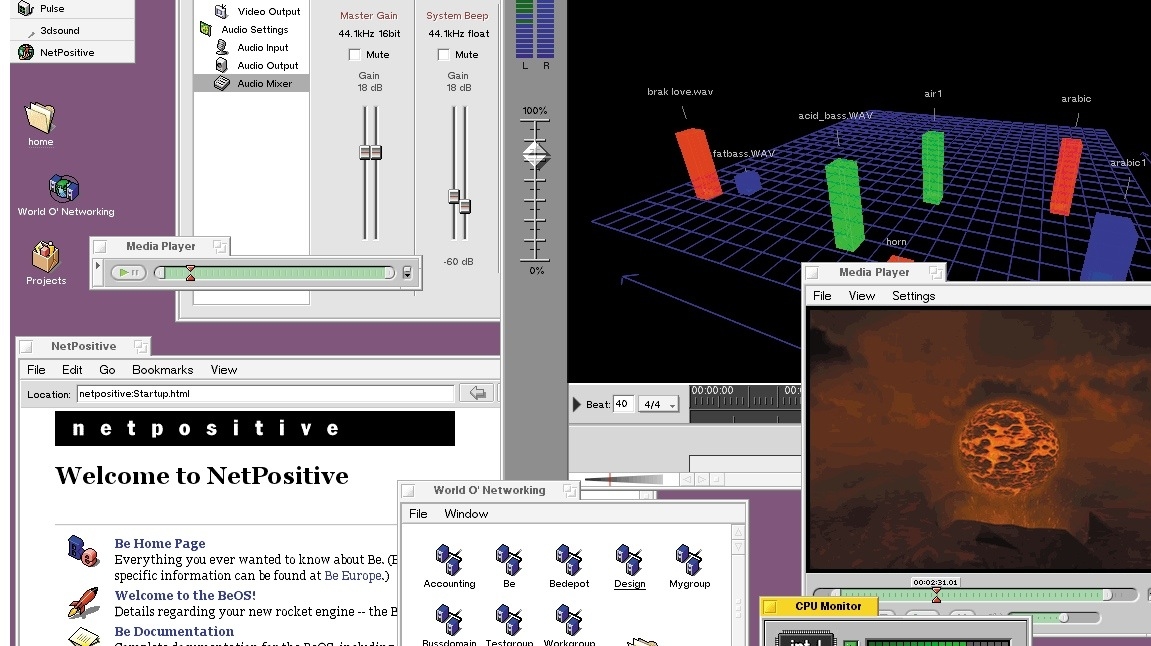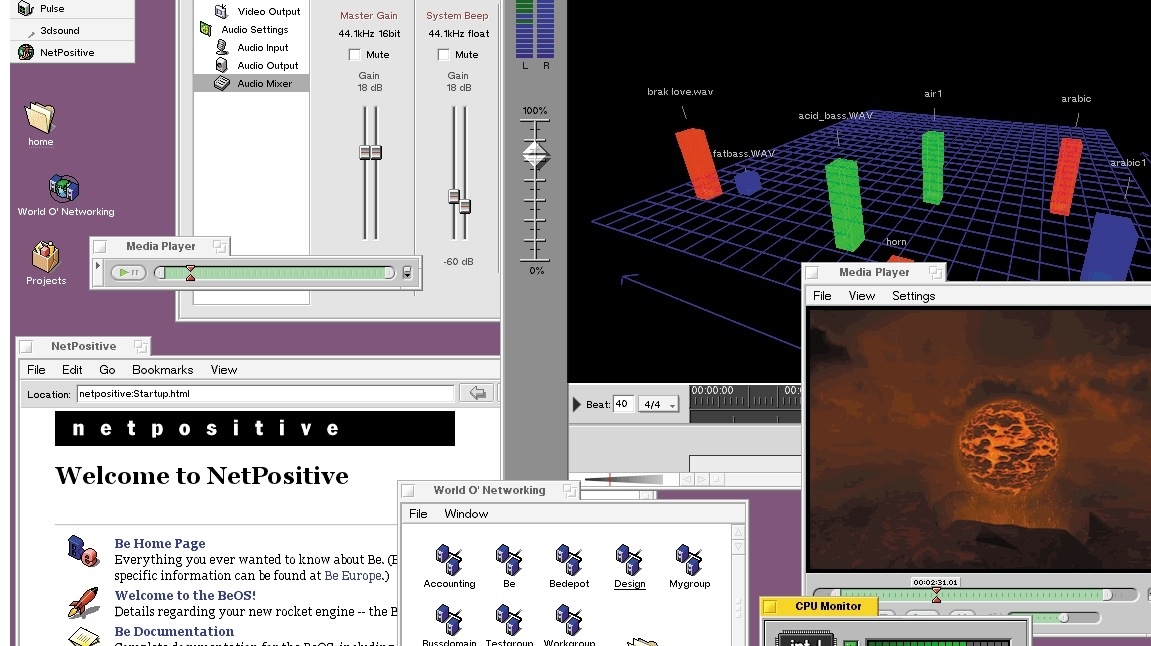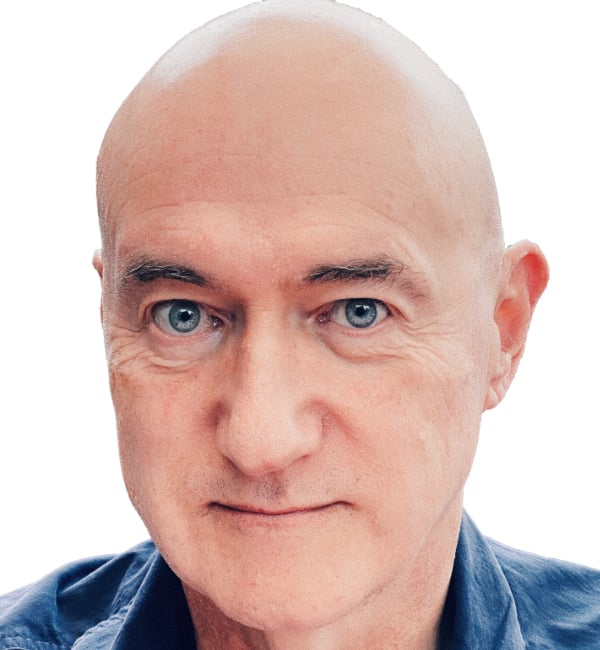
 BeOS Screenshot
BeOS Screenshot
I've always liked "minority" operating systems. I'm amazed at how economical they can be with resources, and how they cope with the diversity of systems that they run on.
My first experience of Linux was the long defunct "Lindows" distribution. I was expecting several hours of installation pain, and, instead, while distracted by a series of phone calls, the OS installed itself, finding my network card, graphics adaptor and all my peripherals, and nonchelantly downloading some software in the background to get me started.
I'm a Mac user now, but look forward to Windows 8, which is a genuinely original and seemingly well thought-out OS; radical in that it's essentially the same core for phones, tablets and desktops. It does need a "start" button, though.
But the OS I still love and miss the most is BeOS.
I'm not going to go into the detail here. It's a long story and well documented. I even wrote an article about it twelve years ago in Sound on Sound magazine (the top European Music Technology magazine).
This lovely little operating system aimed high. It was going to solve most of the problems inherent in OSes that we still use today. It had pervasive multitasking, and was incredibly good with media. I was able to run several media players simultaneously even on the rather feeble computers we had back in 2000 (I think I had a 350 Mhz Pentium II or something like that).
The most amazing thing of all was that BeOS started to gain some traction. People were developing for it. There was going to be a version of Cubase. One developer even released a real-time audio mastering solution.
But it didn't reach critical mass. Not enough people used it to make it worthwhile for the major applications to be ported to it.
As the dream began to fade, the public plans for BeOS changed. It was repositioned as an "embedded" operating system. But while it was ideal for this, with its real-time features, it was the kiss of death for it as a desktop OS, because its beauty was only really apparent when it could be used in a context where you could compare it with other OSs.
Edirol even made a turnkey video editing system based entirely on Beos. It was a successful commercial product.
How good was BeOS, ultimately?
Good enough to nearly be the Mac OS that we could have been using today.
It would have been, if it weren't for the over-ambitious expectations of it's value by its creator, Jean-Louis Gassée. He turned down an offer for over £100 million from Apple.
How much of this is actually true, I don't know. Because the OS it was up against was Steve Job's NextStep.
And that, reskinned and (obviously) massively reworked, renamed to OS X and running on my Macbook Air, is essentially what I'm typing this on now.
Tags: Technology


Comments